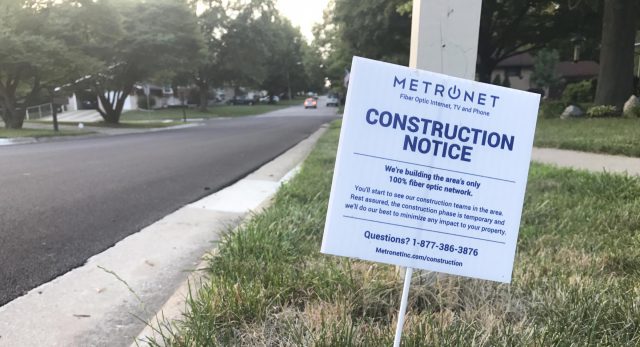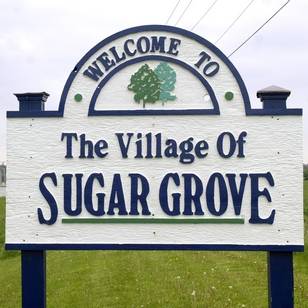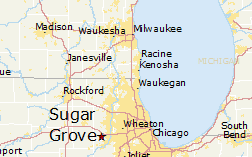 Exurban communities in northern Illinois bypassed for upgrades from second-rate cable companies and considered too-small-for-fiber by AT&T are clamoring for a third option that will deliver fiber optic broadband.
Exurban communities in northern Illinois bypassed for upgrades from second-rate cable companies and considered too-small-for-fiber by AT&T are clamoring for a third option that will deliver fiber optic broadband.
In the Fox River Valley, west of Chicago, Sugar Grove residents are hopeful that a midwestern upstart that specializes in taking on larger cable and phone companies in the region will come to town with gigabit broadband and better service.
MetroNet is currently surveying residents of this fast-growing village of 9,000, looking for future customers willing to put down deposits of $20 to join a “MetroZone,” an area where MetroNet sees enough potential to begin construction of its fiber to the home network, over which it sells television, phone, and internet service.
The Kane Country Chronicle reports local resident Wendy Betustak can’t wait. Betustak has been a customer of both AT&T and Mediacom, and both underwhelmed her.
“I hate AT&T now, but I don’t want to make a jump back to Mediacom because I remember what that was like,” she said. “But AT&T has been out so many times that I’ve stopped calling them.”
While both Mediacom and AT&T have been promoting their investments in upgrading service, those benefits often take many years to reach smaller communities inside their service areas. In some cases, those upgrades will never arrive.
 Sugar Grove is just one of several exploding exurban communities in the far western suburbs of Chicago. As residents migrate further away from the city center, they expect services to migrate with them. But when essential utilities are in the hands of private companies, smaller towns and villages are often frustrated to hear there is not enough Return On Investment to provide 21st century quality service.
Sugar Grove is just one of several exploding exurban communities in the far western suburbs of Chicago. As residents migrate further away from the city center, they expect services to migrate with them. But when essential utilities are in the hands of private companies, smaller towns and villages are often frustrated to hear there is not enough Return On Investment to provide 21st century quality service.
But MetroNet’s business plan is more forgiving, in part because it recognizes it will almost always compete head to head with one or two long-established telecom companies. It also does not hurt to have neighboring communities already wired up by MetroNet, which serves Batavia, Geneva, Montgomery, North Aurora, Oswego, and St. Charles. MetroNet has already installed fiber throughout the village of Sugar Grove and plans to install more.
“These installations will facilitate service to the village at a later date. Currently they are being utilized as transport routes,” Sugar Grove village administrator Brent Eichelberger told the newspaper. “We do not have a firm date for when MetroNet plans to start providing service within the village. If residents and businesses are interested in having MetroNet provide service they should contact MetroNet directly.”
They might want to hurry. Residents are encouraged by the company to visit www.metronetinc.com/metrozone and select Sugar Grove (or another community MetroNet is considering) and create an account. A refundable $20 deposit allows MetroNet to know that a would-be customer is seriously interested in getting service. Right now, MetroNet estimates around 10% of Sugar Grove residents have placed deposits.
 “The MetroZone opportunity is a milestone in that we are able to track those who are interested in us coming to the village of Sugar Grove,” said Kathy Scheller, business development manager for MetroNet. “Our goal is to have 25 percent of the village pre-signed by Feb. 28.”
“The MetroZone opportunity is a milestone in that we are able to track those who are interested in us coming to the village of Sugar Grove,” said Kathy Scheller, business development manager for MetroNet. “Our goal is to have 25 percent of the village pre-signed by Feb. 28.”
MetroNet’s broadband customers blow past Mediacom and AT&T’s offerings with 100/25 Mbps internet service for $49.95 a month. MetroNet’s top speed – 1000/250 Mbps costs $89.95 a month.
The usual alternative for most towns and villages unwilling to consider building their own broadband networks is to wait for the cable and phone company to upgrade service, which could take years in smaller communities. But a growing number of small commercial ventures are starting to offer fiber broadband service in a growing number of communities to meet the demand for better and faster broadband service.


 Subscribe
Subscribe